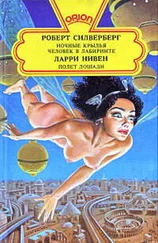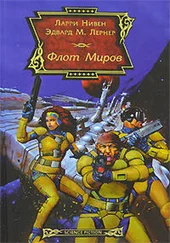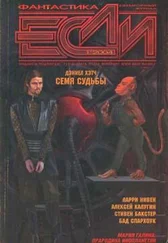«How about exploration?»
«We puppeteers have no taste for abstract knowledge. And how should we explore?» Meaning that whatever race flew the ship would gain the advantages thereby. A puppeteer wouldn't risk his necks by flying it himself. «What we need is a great deal of money and a gathering of intelligences to design something which may go slower but must be less bulky. General Products does not wish to spend so much on something that may fail. We will require the best minds of each sentient species and the richest investors. Beowulf Shaeffer, we need to attract attention.»
«A publicity stunt?»
«Yes. We wish to send a pilot to the center of the galaxy and back.»
«Ye … gods! Will it go that fast?»
«It would require some twenty-five days to reach the center and an equal time to return. You can see the reasoning behind —»
«It's perfect. You don't need to spell it out. Why me?»
«We wish you to make the trip and then write of it. I have a list of pilots who write. Those I have approached have been reluctant. They say that writing on the ground is safer than testing unknown ships. I follow their reasoning.»
«Me, too.»
«Will you go?»
«What am I offered?»
«One hundred thousand stars for the trip. Fifty thousand to write the story, in addition to what you sell it for.»
«Sold.»
* * *
From then on my only worry was that my new boss would find out that someone had ghostwritten that neutron star article.
Oh, I wondered at first why General Products was willing to trust me. The first time I worked for them, I tried to steal their ship for reasons which seemed good at the time. But the ship I now called Long Shot really wasn't worth stealing. Any potential buyer would know it was hot, and what good would it be to him? Long Shot could have explored a globular cluster, but her only other use was publicity.
Sending her to the Core was a masterpiece of promotion.
Look: It was twelve days from We Made It to Jinx by conventional craft, and twelve hours by Long Shot. What's the difference? You spent twelve years saving for the trip. But the Core! Ignoring refueling and reprovisioning problems, my old ship could have reached the galaxy's core in three hundred years. No known species had ever seen the Core! It hid behind layer on layer of tenuous gas and dust clouds. You can find libraries of literature on those central stars, but they all consist of generalities and educated guesses based on observation of other galaxies, like Andromeda.
Three centuries dropped to less than a month! There's something anyone can grasp. And with pictures!
The lifesystem was finished in a couple of weeks. I had them leave the control-room walls transparent and paint the relaxroom solid blue, no windows. When they finished, I had entertainment tapes and everything it takes to keep a man sane for seven weeks in a room the size of a large closet.
On the last day the puppeteer and I spoke the final version of my contract. I had four months to reach the galaxy's center and return. The outside cameras would run constantly; I was not to interfere with them. If the ship suffered a mechanical failure, I could return before reaching the center; otherwise, no. There were penalties. I took a copy of the tape to leave with a lawyer.
«There is a thing you should know,» the puppeteer said afterward. «The direction of thrust opposes the direction of hyperdrive.»
«I don't get it.»
The puppeteer groped for words. «If you turned on the reaction motors and the hyperdrive together, the flames would precede your ship through hyperspace.»
I got the picture then. Ass backward into the unknown. With the control room at the ship's bottom, it made sense. To a puppeteer, it made sense.
III.
And I was off.
I went up under two standard gees because I like my comfort. For twelve hours I used only the reaction motors. It wouldn't do to be too deep in a gravity well when I used a hyperdrive, especially an experimental one. Pilots who do that never leave hyperspace. The relaxroom kept me entertained until the bell rang. I slipped down to the control room, netted myself down against free-fall, turned off the motors, rubbed my hands briskly together, and turned the hyperdrive.
It wasn't quite as I'd expected.
I couldn't see out, of course. When the hyperdrive goes on, it's like your blind spot expanding to take in all the windows. It's not just that you don't see anything; you forget that there's anything to see. If there's a window between the kitchen control bank and your print of Dali's Spain, your eye and mind will put the picture right next to the kitchen bank, obliterating the space between. It takes getting used to, in fact it has driven people insane, but that wasn't what bothered me. I've spent thousands of manhours in hyperspace. I kept my eye on the mass pointer.
The mass pointer is a big transparent sphere with a number of blue lines radiating from the center. The direction of the line is the direction of a star; its length shows the star's mass. We wouldn't need pilots if the mass pointer could be hooked into an autopilot, but it can't. Dependable as it is, accurate as it is, the mass pointer is a psionic device. It needs a mind to work it. I'd been using mass pointers for so long that those lines were like real stars.
A star came toward me, and I dodged around it. I thought that another line that didn't point quite straight ahead was long enough to show dangerous mass, so I dodged. That put a blue dwarf right in front of me. I shifted fast and looked for a throttle. I wanted to slow down.
Repeat, I wanted to slow down.
Of course there was no throttle. Part of the puppeteer research project would be designing a throttle. A long fuzzy line reached for me: a protosun …
Put it this way: Imagine one of Earth's freeways. You must have seen pictures of them from space, a tangle of twisting concrete ribbons, empty and abandoned but never torn down. Some lie broken; others are covered with houses. People use the later rubberized ones for horseback riding. Imagine the way one of these must have looked about six o'clock on a week night in, say, 1970. Groundcars from end to end.
Now, let's take all those cars and remove the brakes. Further, let's put governors on the accelerators so that the maximum speeds are between sixty and seventy miles per hour, not all the same. Let something go wrong with all the governors at once so that the maximum speed also becomes the minimum. You'll begin to see signs of panic.
Ready? Okay. Get a radar installed in your car, paint your windshield and windows jet black, and get out on that freeway.
It was like that.
It didn't seem so bad at first. The stars kept coming at me, and I kept dodging, and after a while it settled down to a kind of routine. From experience I could tell at a glance whether a star was heavy enough and close enough to wreck me. But in Nakamura Lines I'd only had to take that glance every six hours or so. Here I didn't dare look away. As I grew fired, the near misses came closer and closer. After three hours of it I had to drop out.
The stars had a subtly unfamiliar look. With a sudden jar I realized that I was entirely out of known space. Sirius, Antares — I'd never recognize them from here; I wasn't even sure they were visible. I shook it off and called home.
«Long Shot calling General Products, Long Shot calling —»
«Beowulf Shaeffer?»
«Have I ever told you what a lovely, sexy voice you have?»
«No. Is everything going well?»
«I'm afraid not. In fact, I'm not going to make it.»
A pause. «Why not?»
«I can't keep dodging these stars forever. One of them's going to get me if I keep on much longer. The ship's just too goddamn fast.»
Читать дальше





